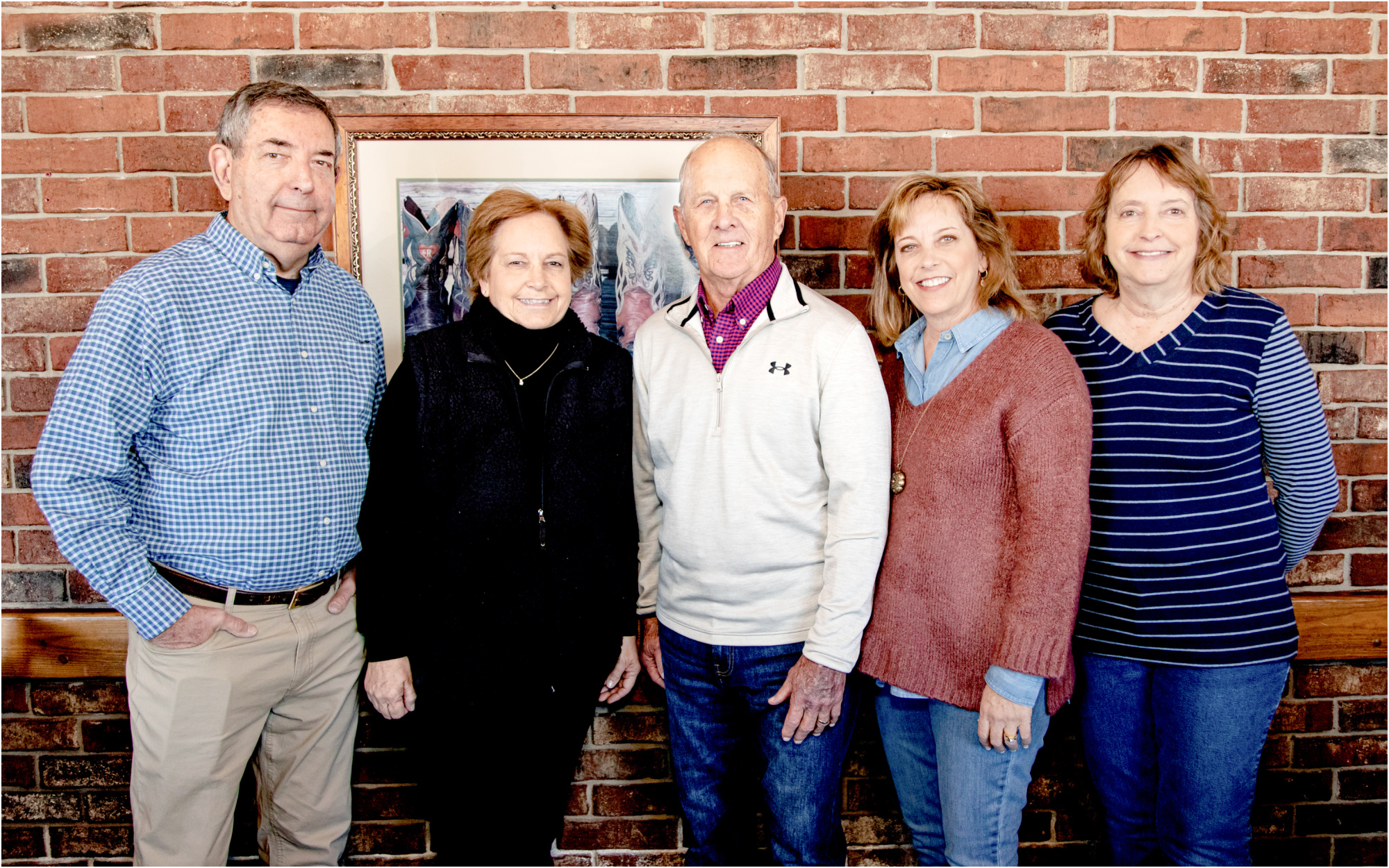It was a Monday, already sticky under the heat of an Arkansas summer morning, David Scherrey dropped his wife off at work and nosed the car toward home.
David was assistant manager of the Piggly Wiggly in those days, and the father of three young kids, along for the ride that morning. As he drove, his mind lolled to what lay before him. It was a short drive, but in 1972 nothing in Fort Smith felt that far from anything else, and he’d soon be home to get ready for work. Before he’d arrive, five lives would be forever changed.
****
Don and Dorothy Kelley were working-class parents to a big family. Don, a trucker, spent a lot of time on the road to provide for his family, while Dorothy worked a full-time job of her own in addition to running the household.
The couple’s four children, Doug, Donna, Debbie and Diane, learned responsibility and hard work early, but there was plenty of time for simple joys too, for camping trips and playing on the local softball team. The family may not have had much, but they had each other, and that was more than enough.
Even today when they get together stories flow naturally. Of how the young parents bought the home at 2401 Tulsa. Of life in a 1,100-square-foot house with one bathroom among six people. Of the girls tormenting their older brother growing up, of pranks pulled and first heartbreaks and inside jokes.
And, inevitably, of the fire.
It’s unfathomable what could have happened to the siblings asleep in their beds that day and the passage of time has done nothing to dull the thought of it. But for a passing good samaritan, the table at which they now gather may have been much smaller, with silent, empty chairs.
To this day, it’s unclear what caused the blaze that originated in the laundry area where something sparked and ignited the house. In the melee that followed, four lives were saved, and one interwoven with a random family, encountered on an ordinary ride home.
****
To understand the events of that day is to understand how profoundly different the world was then, a world where consumer technology had only produced three television channels and a corded phone mounted on the wall. Kids played and explored the outdoors unsupervised, rode their bikes everywhere with friends until the streetlights came on. In short, everything that mortifies parents today was everyday life for kids in the 1970s.
So, it was nothing out of the ordinary when Dorothy ran to a local laundromat that morning leaving the kids asleep. With Doug being fifteen and Donna almost thirteen, there was plenty of supervision to hold down the fort until she returned.
Except on this day, she returned to fire trucks and emergency vehicles clogging the neighborhood. She had to take an alternate way back only to feel the sickening realization it was her home they’d been summoned to save. Her way blocked, she threw the car into park and ran, skipping over fire hoses, her voice its own siren.
“My kids are in that house!” she screamed. “My kids are in that house!”
****
David came around a curve and immediately saw something wasn’t right. Smoke billowed out of one of the houses as flames licked the perimeter of the carport. There was no car to be seen; maybe they’re not home, he thought, but he couldn’t be sure. He parked across the street and ran to the front door.
All at once he was inside, calling out for anyone who might be there. Smoke roiled and tumbled in the living room and hearing no one, he ran to a neighbor’s house and banged on the door for them to call the fire department.
Meanwhile, Doug awoke and looked around. Whatever grogginess he felt was dashed by the smell of smoke and the realization the house was on fire. He bolted from the bedroom to meet a confused Donna standing in the hallway and commanded his sister to follow him out.
It’s a part of the story that still produces uproarious laughter from his siblings. Having been taught to keep low in a fire, in the moment he interpreted that to mean bend at the waist, not crawl on the floor, and they ran for daylight hunched over like battering rams. From smoke and chaos, he and Donna made it to the front yard, their little sisters still inside.
****
David came out from the neighbors to see the two older kids stumble onto the lawn. He ran back and asked if anyone else was inside. Hearing that there was, he ran to the east side of the house.
Ten-year-old Debbie woke first and like her brother, knew smoke meant trouble. She started rousting Diane to wake up. Wanting to go back to sleep, the obstinate nine-year-old kept fighting her off, until Debbie pulled her out of bed onto the floor, yelling they had to get out. Together they scooted a heavy dresser to get behind and then the window caved and a man they’d never seen before reached in and helped them scramble to safety.
Diane remembers looking back to see black smoke pouring in through the bedroom door, clawing after them. The girls joined their siblings on the front lawn, four shaken children in their pajamas, wide-eyed with fear and ebbing adrenaline. A voice sliced through the haze, “My kids are in that house!” and a familiar form ran to them. They looked around. Their mom was rushing in, the mystery man gone.
****
David left the scene to the authorities, quietly slipped to his car, and drove home. He arrived at the Piggly Wiggly to hear the cashiers abuzz with excitement – a house had burned, and four children had been saved.
“Yeah, I heard about it,” he said, as casually as talking about heads of lettuce. “I was there.”
It was about as talkative as David would get about the incident; his wife, Rochelle, jokes if she hadn’t learned of it in the news, she might not know today what he’d done. He got one call from the local media on a tip he was the mystery hero and that was about it, which was fine with him. He wasn’t hiding anything, per se, he just didn’t like the spotlight.
He did return to the house on Tulsa to check on things. The Kelley kids remember him in the driveway chatting briefly with their folks and when he left, for the final time it seemed, it was as mysteriously as he had appeared.
****
All four kids would lead full and productive lives. Shortly after the fire, Doug started taking flying lessons and would work as a pilot for ArcBest for forty-four years. Donna Vieth completed perfusion school and worked in operating rooms. Debbie Hug had a career with a local utility and lived for a time in the repaired family home when her parents moved to Texas. Diane Rainwater earned her degree and ran a trucking company with her husband. All are happily married with children and grandchildren of their own.
The story might have ended there, except for Dorothy and her late husband Don’s meticulous habit of saving. Eventually they’d retire and sought financial planning to manage their nest egg, settling on a sharp gal they really liked, whom they referred to as “Kim from the bank.”
Recently, Debbie was part of a community committee and found herself seated next to Kim from the bank, aka Kim Scherrey. Debbie pieced things together and asked Kim about her father. Was he, did he, by chance…
Kim took it up with her dad who confirmed things, and in telling Debbie, Kim dropped another bombshell – the David who’d sat on the committee with them for months, was one and the same. Debbie’s hands shook as she texted her siblings; the man they’d wondered about for fifty years was right here.
A few weeks ago, a family reunion of sorts occurred. The siblings and Dorothy met for breakfast with David, his wife of fifty-two years Rochelle, and their daughter, Kim from the bank. The family shared what they’d done with the lives he’d given back to them, hugged him, thanked him, hugged him again. David, who’s retired, listened, smiled, and looked at home in the honorary place he has in the family, previously in absentia, now manifested for all time.
“I feel really good. These stories are just wonderful,” David says. “I just met them, but I can tell that they’re all really good people.” Tears flowed. Laughter was shared. A circle closed, whole at last.




